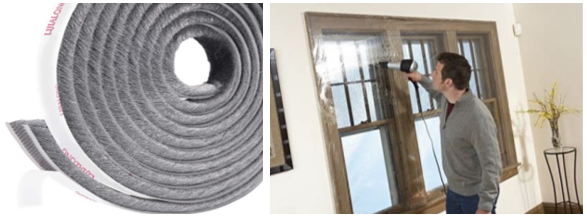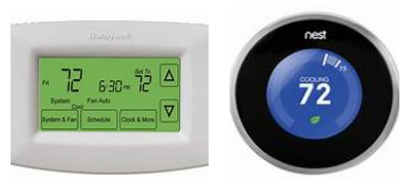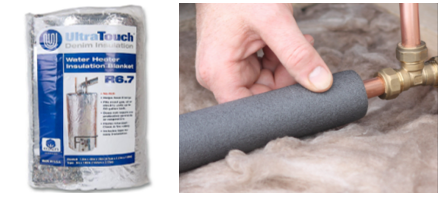
Save Energy
-

Six Energy Efficient Home Upgrades
Clean Heating & Cooling
Super-Efficient Water Heater
Smart Thermostat
Well-Insulated and Sealed Attic
High Performing Windows or Storm Windows
Electric Ready
Learn more about these energy efficient home upgrades and how they can provide significant energy and cost savings here.
-

Federal Income Tax Credits & Incentives for Energy Efficiency
The Inflation Reduction Act (IRA) of 2022 provides federal tax credits and deductions that empower Americans to make homes and buildings more energy-efficient to help reduce energy costs while reducing demand as we transition to cleaner energy sources.
Tax credits are available for home clean electricity products, heating, cooling, and water heating, and other energy efficiency upgrades from now until 2032. A summary of tax credits available in IRA is available here.
Scroll down to learn more.
-

Easy Energy Savings
Did you know appliances still use energy when plugged in, even if they’re turned off? This is called “phantom” energy. One of the easiest ways to save energy is to unplug appliance and devices when not in use to reduce phantom loads. Learn to identify and track your home’s phantom power loads here.
Another easy way to save energy is to replace appliances with ENERGY STAR certified products which meet strict energy-efficiency requirements set by the U.S. Environmental Protection Agency (EPA).
Using less energy will not only save you money every month on your utility bill, but it is also better for the environment!
Major Home Energy Efficiency Improvements
Solar Energy
Did you know that South Dakota used to have the motto of calling ourselves “The Sunshine State”? It’s true because we’re blessed with a large amount of solar radiation. In fact, SD has one of the highest “Solar Resource Values” compared to other nearby states. This makes installing a solar system here capable of producing a large portion of a home’s electrical needs.
Generation of electricity by a small-scale, before-the-meter solar systems on homes and businesses has numerous advantages, including saving money, providing greater freedom of choice in the energy supply, improving the local and global environment, and providing more resilient electric service, especially when combined with on-site battery storage.
Solar not only reduces the customer’s use of power from the electric utility, but at times, also allows the customer to provide a service to them, thus becoming a producer (or generator) of energy. Some have applied a new label – “prosumers” – to such customers in recognition of this dual role as both a customer of the electric utility & as a supplier providing a service (generation) to them.
In addition, new federal tax incentives exist now to help add solar to your home (scroll down to learn more).
Home Energy Assessments
According to the Department of Energy (DOE), residential energy use accounts for about 21% of U.S. energy consumption. To reduce this consumption, you should first perform a “do-it-yourself” home energy assessment to determine what’s contributing to your high energy bills. One key thing to do is reduce your infiltration (air leakage) by fixing or replacing windows and doors that don’t seal properly. These are usually easy fixes by adding weatherstripping and plastic window film.
Other low-cost things you can do to your heating, ventilating and air conditioning (HVAC) system includes having it inspected annually, replacing the air filters on a regular basis, and installing a setback thermostat.
Homeowners should also replace as many of those old incandescent bulbs with LEDs as possible. These measures should allow you to save 10% - 15% on your energy bills.
You should also look in your attic to see how much insulation is up there vs. how much you need. If it’s necessary to add more, it will pay you dividends every year!
After performing your own DIY energy assessment, you’ll already have a lot of valuable information available if you decide to go the next step -- having a professional energy audit conducted.

Federal Tax Credits & Incentives for Energy Efficiency
-
Federal Income Tax Credits and Incentives for Energy Efficiency
-
Major Tax Benefits of the Inflation Reduction Act (IRA)
-
Tax Credits for Clean Vehicles & Charging Equipment
-
Home Energy Rebate Program
#STARTNow












